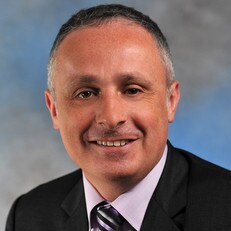Infusing profit with purpose through financial inclusion
Marginalized populations around the world struggle to access business loans and other financial products. We're helping to develop for-profit ways to improve inclusivity.

Magic happens at junctures where worlds collide. Consider financial inclusion. In an evolving landscape, financial services providers and investors often face pressure to deliver strong bottom lines. With market saturation a growing concern, many companies are thinking creatively. At the same time, some marginalized groups such as women, immigrants, youth, and those outside of urban centers can struggle in a market where they bump up against barriers in accessing financial products.
And so an opportunity is born.
Foresighted, entrepreneurial financial institutions and investors are eyeing the more than 1.1 billion women and 70 percent of women-led small businesses still unbanked globally as a potential revenue source. Companies, however, often balk at the cultural, legislative, and technological barriers to entry and seek guidance in navigating these new markets. Enter Deloitte.
Deloitte has long advocated that a for-profit way to be financially inclusive is not only possible, but over the long term is more sustainable and scalable. Working with leading institutions like the United States Agency for International Development (USAID), Deloitte approaches financial institutions to move forward in unconventional ways. “We are seeding innovation in the finance sector,” said Steve Watkins, a finance and inclusion leader in Deloitte’s ESG practice.
Deloitte helps financial institutions understand the needs of marginalized market segments and assists in developing strategies and products to profitably serve them. This includes risk mitigation tactics such as leveraging local networks and anchor companies. As an example, some lenders in developing countries now accept guarantees from rural community savings groups as collateral for small business loans made to family-owned businesses that play an important role in the community.
Wade Channel, retired senior adviser on gender and development at USAID, lauded Deloitte’s approach. “Through their sustained partnership and private sector perspective, Deloitte has helped USAID adopt more private-sector, market-oriented approaches to women’s financial inclusion—and this has improved our program design and impact.”
Among the solutions Deloitte helps clients pursue are leveraging the fintech ecosystem, accessing new markets through movable property lending, using technology to reduce the cost of regulatory compliance, and considering alternative credit scoring models.
“We want to catalyze impact as broadly as possible,” says Allie O’Shea, manager, Deloitte LLP. The objective is to reach the inflection point where inclusive organizations in underserved markets become profitable. Across the globe, helping small businesses succeed is making an impact for both individuals and their communities.

